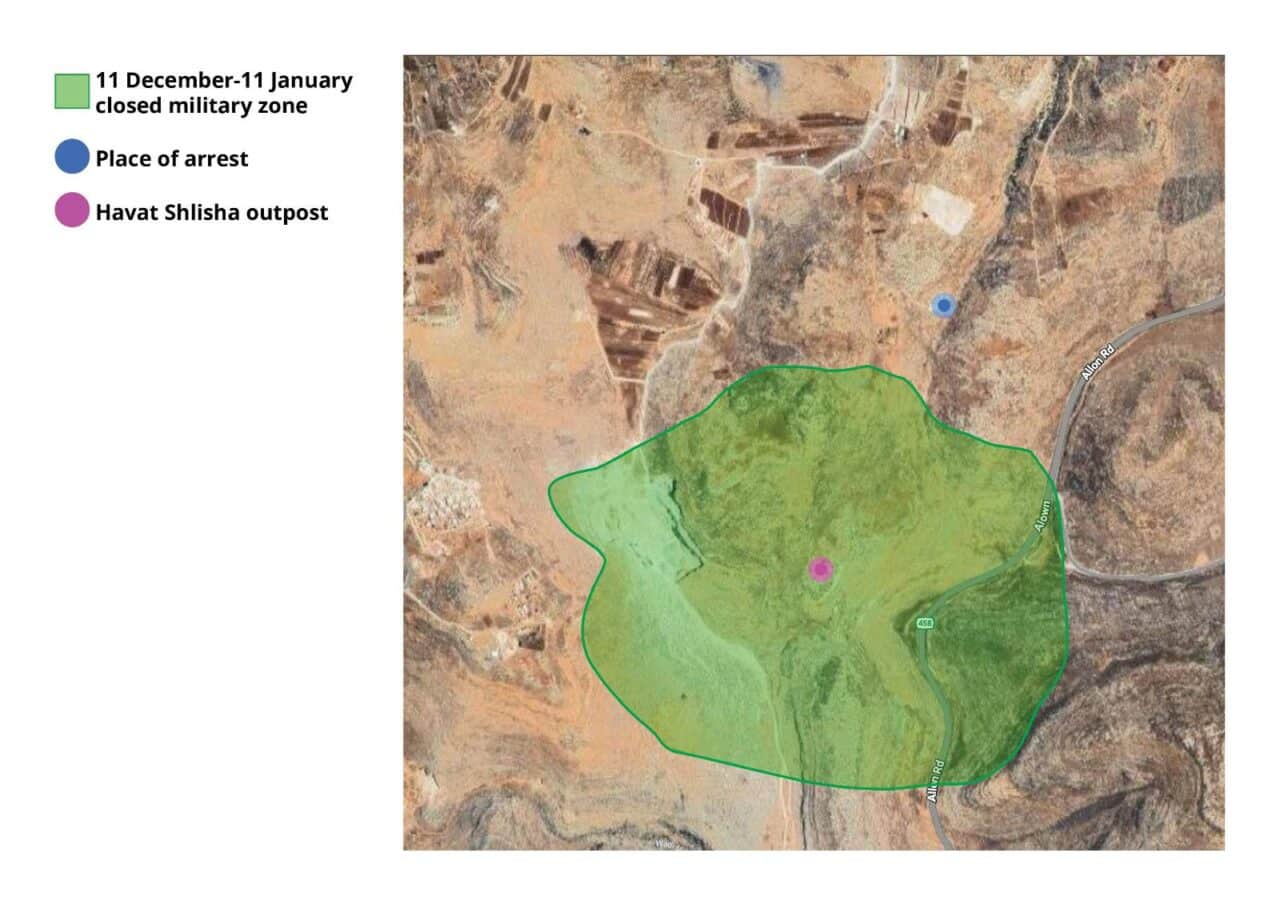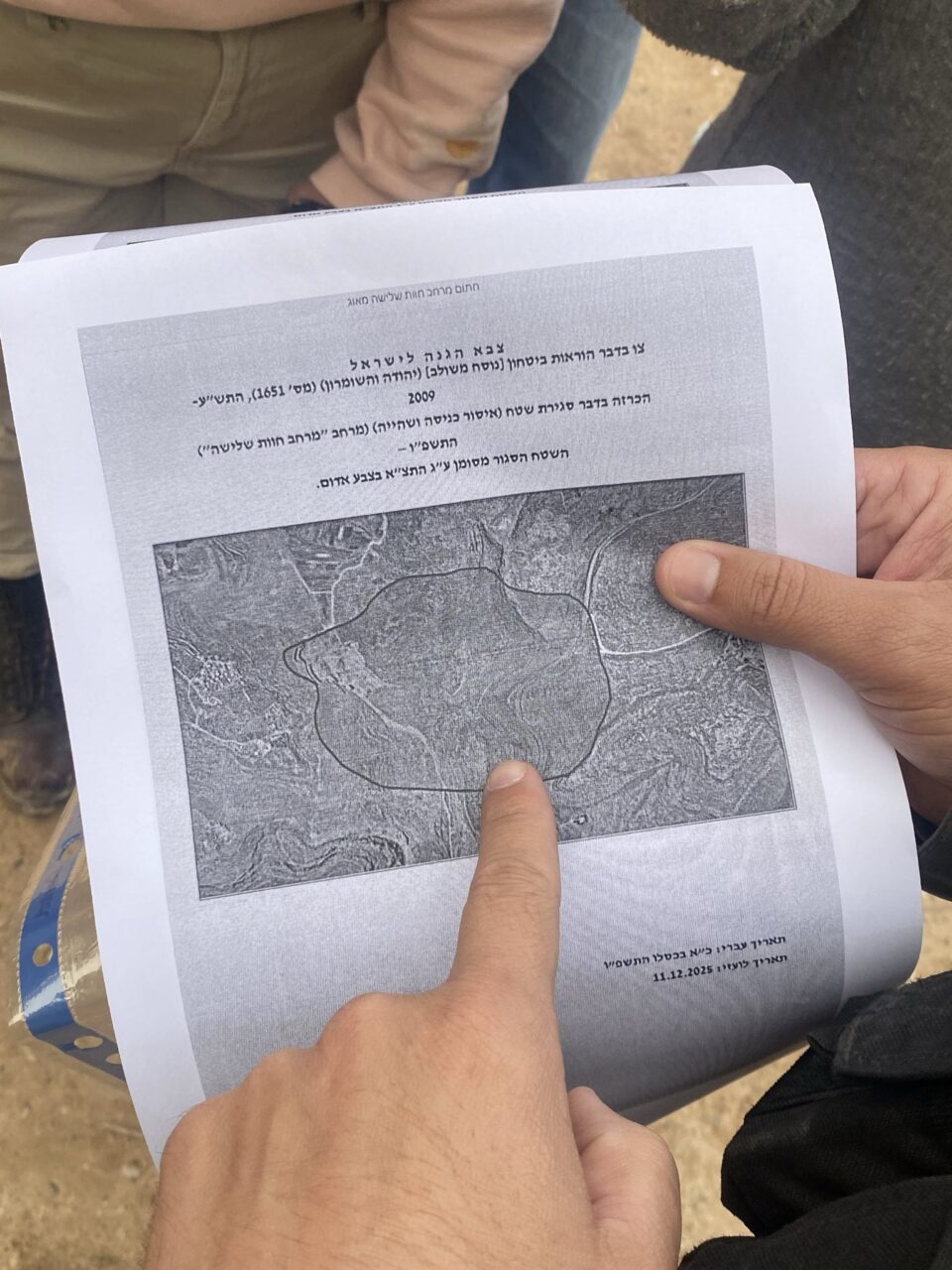-
CALL TO ACTION: Write to the US Embassy in Jerusalem to Demand they Attend the Review Hearing of Illegally Detained US citizens and Protect the Abu Hamam Family
Tomorrow, December 16, US citizens Irene Cho and Trudi Frost will have a detention review hearing at 10 am. The US Embassy has so far refused to attend the hearing so we ask supporters to email the Embassy demanding their presence and to represent their citizens who were illegally arrested on December 12 in al-Mughayyer. […]
-
US Activists Imprisoned by Israel while Challenging Deportation
FOR IMMEDIATE RELEASEDecember 14, 2025 Irene Cho and Trudi Frost were arrested on Friday, December 12, in the West Bank village of al-Mughayyer while staying with a family threatened with forced displacement. Their staying permits were revoked last night through a summary procedure, with officials refusing to review evidence of the illegality of the arrest. […]
-
FOR IMMEDIATE RELEASE: al-Mughayyer – US activists facing deportation after unlawful arrest
For more details: Mia +972-53-809-7706 December 13, Palestine – Two American activists are currently being detained at Ben Gurion airport awaiting a deportation interview. Boston Massachussets based Trudi Frost and a New York based activist will both challenge the deportation outcome after being unlawfully arrested yesterday in al-Mughayyer, north of Ramallah. This comes as the […]
Action Alert An Nabi Saleh Apartheid Wall Arrests BDS Bethlehem Bil'in Cast Lead Demonstration Denial of Entry Ethnic Cleansing Farmers Gaza Global Actions Hebron House Demolition International law Israeli Army Jerusalem Live Ammunition Nablus Ni'lin Prisoner Ramallah Rubber-coated steel bullets Settlement Settlers Settler violence Tear-Gas Canister Video


